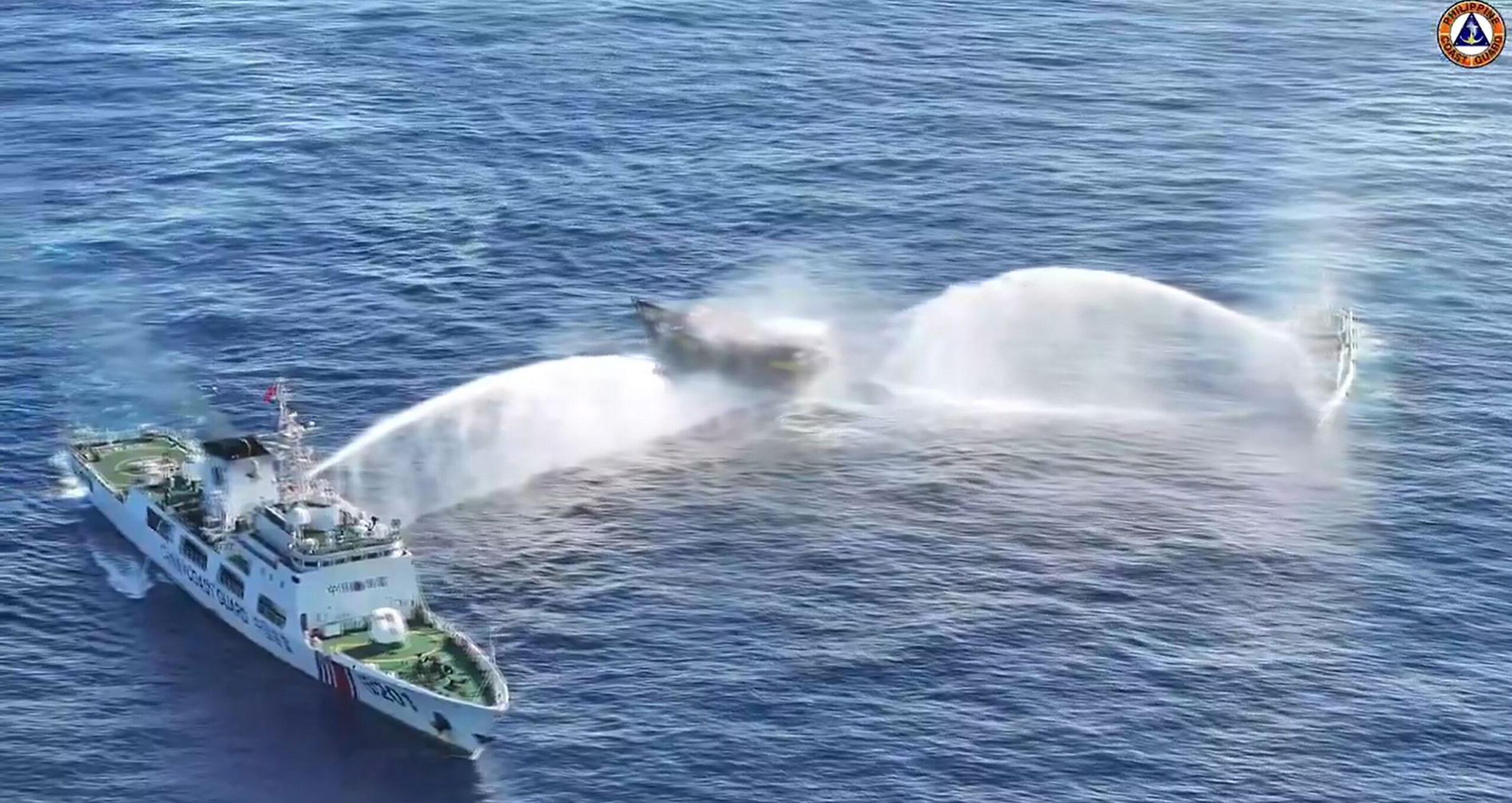Marcos, Biden, Kishida to China: Stop ‘coercive use’ of vessels

A RED LINE To slip past water cannon attacks and blocking maneuvers of Chinese ships, last seen during the incident in Ayungin Shoal on Tuesday, the Philippine military will focus on speed and maneuverability in its future missions to its outpost there, the BRP Sierra Madre, according to Vice Adm. Alberto Carlos, chief of the Western Command. —VIDEO GRAB FROM PCG
WASHINGTON — In an unprecedented trilateral summit, President Ferdinand Marcos Jr., United States President Joe Biden and Japanese Prime Minister Fumio Kishida asked China to stop the “dangerous and coercive use of [its] Coast Guard and maritime militia vessels” in the South China Sea, calling out its “dangerous and aggressive behavior’’ in the strategic waterway.
The three leaders on Thursday (Friday in Manila) also called on Beijing to abide by the 2016 arbitral ruling voiding its sweeping claims in the SCS and upholding Philippine jurisdiction in its exclusive economic zone.
READ: Beijing slams US-Japan-PH summit, says South China Sea actions ‘lawful’
In a joint statement, they noted with concern China’s “militarization of reclaimed features and unlawful maritime claims in the South China Sea … as well as efforts to disrupt other countries’ offshore resource exploitation.”
“We reiterate [our] serious concern over the PRC’s (People’s Republic of China’s) repeated obstruction of Philippine vessels’ exercise of high seas freedom of navigation and the disruption of supply lines to Second Thomas Shoal, which constitute dangerous and destabilizing conduct,” said the statement, referring to Manila’s efforts to maintain a military outpost in Ayungin Shoal.
“The final and legally binding July 12, 2016 Arbitral Tribunal determined that this feature lies within the Philippines’ exclusive economic zone, and we call on the PRC to abide by the ruling,” the statement added.
For the fisherfolk
The Philippines in 2013 brought an arbitral case against China before The Hague-based Permanent Court of Arbitration over China’s occupation of Panatag (Scarborough) Shoal in the West Philippine Sea following a standoff in 2012. Marcos, Biden and Kishida also expressed support for both “Filipino and Japanese fisherfolk [as they] pursue their traditional livelihoods.”
In reference to Japan’s maritime dispute with China, they said: “We express our serious concerns regarding the situation in the East China Sea and reiterate our strong opposition to any attempts by the PRC to unilaterally change the status quo by force or coercion,… including through actions that seek to undermine Japan’s longstanding and peaceful administration of the Senkaku Islands.”
READ: Trilateral event at Indo-Pacific forum to eye Luzon corridor investments
They stressed “the importance of peace and stability across the Taiwan Strait as an indispensable element of global security and prosperity,” adding that “there is no change in our basic positions on Taiwan and call for a peaceful resolution of cross-Strait issues.”
China maintains its longstanding claim over Taiwan after the island’s breakaway from the mainland following the takeover of communist rulers in 1949. Taiwan has since developed into a self-sustaining democracy amid Beijing’s threat to retake the island, by force if necessary.
The United States, Philippines and Japan also discussed the conduct of a trilateral coast guard exercise in 2025.